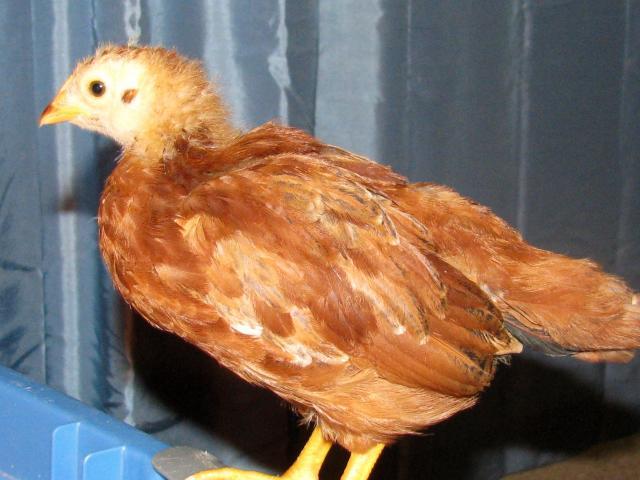I agree with the others that said you were too quick to put them together. My method works well for me, and I'll explain what I do:
Starting around 3 weeks of age I begin taking my babies outside to spend some time learning how to forage, enjoying the sunshine, etc. I have a round pen that I purchased strictly for this reason. What I do with the pen is I put it right next to the fence where my adult birds are, and I place the chicks inside the pen in clear view of the adult birds, but safely out of their reach. I throw the adults some scratch and they will come over and look at the chicks a bit, and then wander back off. I will continue to do this on a daily basis for several hours, weather permitting, and as time goes on, the chickens grow less and less interested in the chicks. If anything, their only interest is in the food and water set out for the babies. Then, around 6 weeks I begin to put them in the coop. I have a big dog crate meant for a large dog, and I place the babies inside the dog crate with a big bowl of food and water. They get locked in the crate for the next few weeks. Once a day or so, while all the big birds are outside I will close the coop door, open the crate, and let the babies run around for a little while and explore. Then they get locked back up. I've even been able to do this with hens in the nest box cause they seem more interested in setting on their eggs or laying than they do in the chicks. After a couple of weeks, when they chicks are bigger, I open the crate and let them out under complete supervision. If I see them getting pecked, they will get saved by either myself or one of my kids. Thus far I've only had the babies get a few disciplinary pecks, but nothing outright mean. I do have one hen that will chase them around, but the chicks are already almost bigger than her, and she isn't doing that as much now. I always make sure that there is plenty of food and water, and I take the chicks to the food bowl after the adults have eaten, and I watch them as they eat and drink to make sure they get their fill. I lucked out because I have a rooster that has decided he is the protector of the chicks, and he will risk injury from the flock leader in order to keep the chicks safe. I was surprised the first time I saw him jump in front of a pecking hen to protect a baby. My chicks are 8 weeks old and have been running around with the adult birds for several days now, and no one has been severely injured. I am getting ready to put another 6 week old group out there, but I've been putting it off a bit because I have tiny bantams in this group that could possibly walk right through the cage bars, so I have to rig some chicken wire or something around the bottom of the cage so they can't walk out and get pecked. This group is larger than the previous group. The flock I am doing this integration with is my bantam flock. It consists primarily of Cochins, but I also have Silkies, a d'Uccle hen, and a Brahma roo in there too, as well as 6 ducks. The 8 week old chicks that are out there now cosist of standard EE's and bantam Cochins. The group I'm getting ready to move out there consists of standards and bantams too, but has some super teeny tiny bantams that I worry about. Eventually the EE's and the standards in this next group will move over to my standard pen, at which time I will start the integration cycle all over again. But they are just too small to try integration right now. My standard roo easily tops the scale at more than 10lbs!
I think you should put together some sort of structure that you can put your chicks in inside or next to your current run, so that the chicks can adapt to the presence of the chickens, and visa versa. But you now need to give the injured chicks time to heal. The bloody wounds on their heads is an open invitation and the hens will peck to kill just to taste it now. Get some Blu-kote and dress those wounds so the other chicks don't peck either. And good luck!!!
 I have separated all of them. Is there anything else I can do? Will the hens eventually stop this behavior? HELP!
I have separated all of them. Is there anything else I can do? Will the hens eventually stop this behavior? HELP!





 t still let them get acquainted. Until then, in the Rubbermaid container they will stay!
t still let them get acquainted. Until then, in the Rubbermaid container they will stay!

 . The man at the feed store told me that banty roosters are the meanest of all roosters....is that true?
. The man at the feed store told me that banty roosters are the meanest of all roosters....is that true?